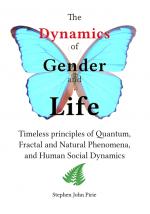Imagine that you are the most creative, the most talented, the strongest, the bravest, or the most compassionate person among those you know, or know of.
Perhaps you’ve gained a medal at a recent Olympic Games, after years, or decades of training and discipline. Your successes, your resolve, your discipline in the face of adversity, have instilled in you a can-do attitude that empowers you, enabling you to push through difficulties, come what may.
Imagine though, that at some point you start identifying with some group. What would happen? If you primarily identify with a group, you immediately diminish yourself. You can no longer be the most creative, or the most compassionate, or the bravest. You can at best be the average of the group, since the group can only be known by its average, by its perceived reputation, by its perceived degree of, or perceived lack of compassion, strength, honesty, and creativity.
Even if you belong to some elite group, that group can’t fully reflect your unique abilities and strengths – your choices, successes, hair-style, fashion, and so on.
Group-ism, tribalism, socialism, collectivism – when used as a primary means of identity – all diminish the rambunctious, vibrant individuality of those within said groups, tribes and collectives.
Collectivism, in its various forms, as for example that which was applied in the Soviet Union, given its innate dis-empowerment of the citizens, can and must result in widespread mediocrity, in the form of poverty, crime, disability, starvation, violence and so forth.
Now, as to why we’ve seen a trend toward collectivism, in our Western culture, commonly called woke, or cancel culture, and identity politics – let’s start with a rudimentary understanding of life.
read more at 'The underlying cause of woke, cancel culture' (substack)
